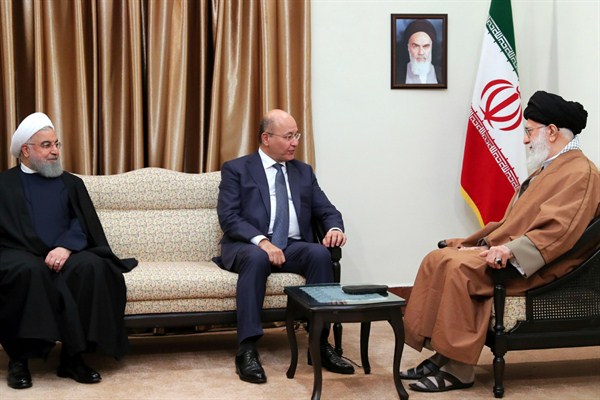Iraqi President Barham Salih traveled to Iran’s capital, Tehran, last month for talks with Iranian President Hassan Rouhani. The meeting came two weeks after the U.S. reimposed tough sanctions on Iran that had been lifted under the 2015 nuclear deal. In light of those sanctions, Iran’s economic ties with Iraq, which relies on Iranian gas for nearly half of its energy supply, are of utmost importance to Iranian rulers. In an interview with WPR, Tamer Badawi, a research fellow at the Istanbul-based Al-Sharq Forum, discusses Iran’s strategy for maintaining close commercial ties with Baghdad.
World Politics Review: How has the Trump administration’s decision to reimpose sanctions on Iran affected Tehran’s approach to economic engagement with Iraq?
Tamer Badawi: The Trump administration has placed a high priority on curbing Tehran’s economic exchanges with Iraq, the third-largest recipient of Iranian non-oil exports, but this is a tall order. The U.S. granted Iraq a 45-day exemption from sanctions last month so that it could continue importing natural gas from Iran, which accounts for 45 percent of Iraq’s power generation, but officials in Washington reportedly acknowledge that Iraq will need more time to wean itself off from reliance on Iranian energy. In the meantime, the Trump administration, like the Obama administration before it, has not hesitated to punish Iraqi financial institutions for moving Iranian money. Earlier in May, the U.S sanctioned the Iraq-based al-Bilad Islamic Bank. After the imposition of the first round of U.S. sanctions on Iran in August, unverified reports claimed that the U.S. sent officials to Baghdad over the summer to investigate five Iraqi banks for allegedly violating U.S sanctions on Iran as part of a probe that was launched under Obama’s presidency.

